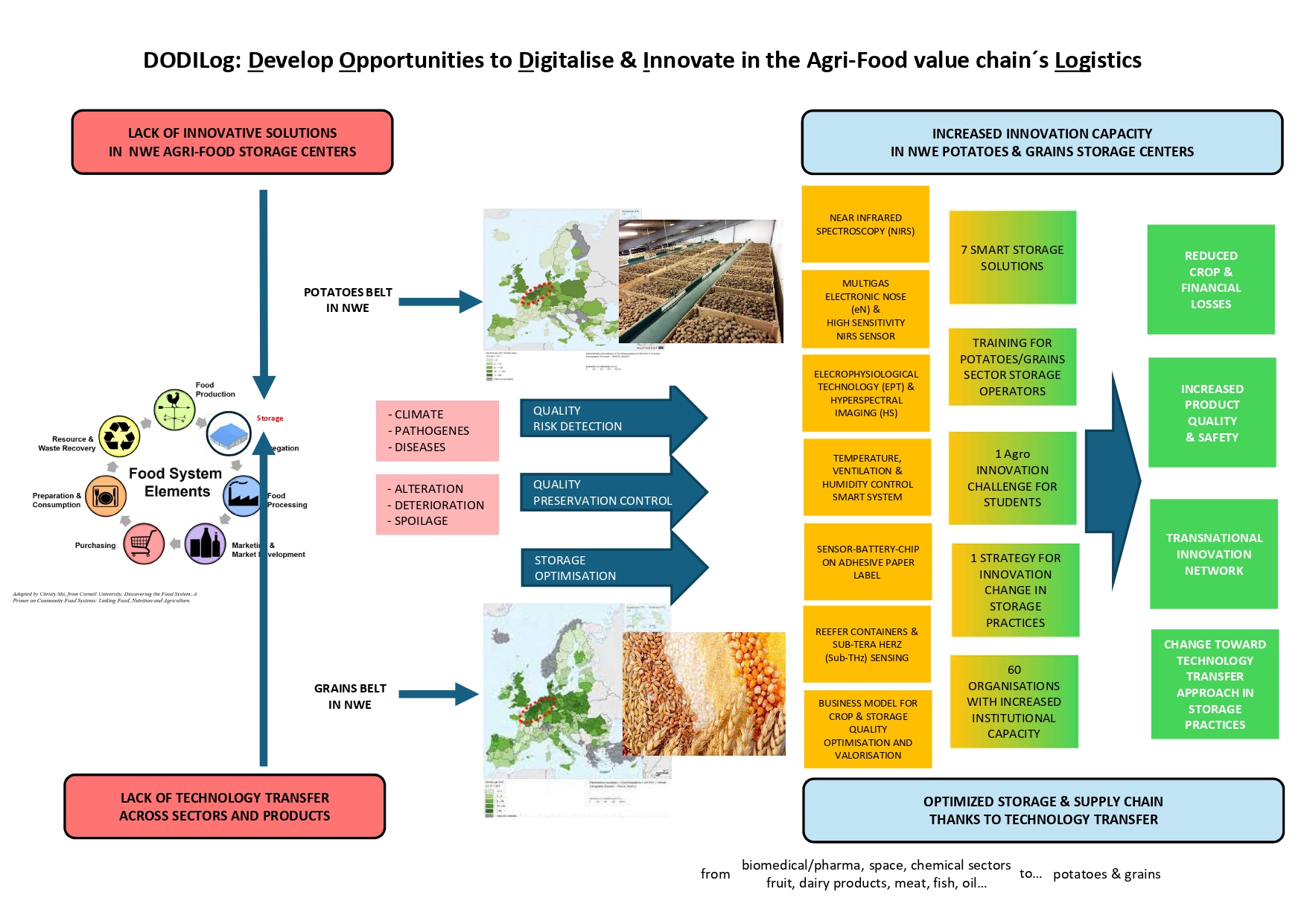DODILog
Develop Opportunities to Digitalise&Innovate in the Agri-Food value chain´s Logistics
EU Funding
Total Budget
Timeline
Countries
BETTER POTATOES/GRAINS´ STORAGE =
MORE FOOD SAFETY + LESS CROP & FINANCIAL LOSS!
WHY DODILog?
The DODILog regions and peri-urban areas with their ports are key production/storage/export hubs for POTATOES & GRAINS, the most common staple food in NWE´s diet. However, these highly sensitive products, especially if organic, are easily subject to decay (sprouting/rot due to heat/moisture/mechanical stress/unbalanced gas levels) or disease/pathogen attacks (fungi/pest infestation).
WHAT?
DODILog will bring together transnational multi-disciplinary partners (cargo owners/movers/keepers; scientific/technology/infrastructure providers) with diverse expertise and enable storage operators to test techniques, processes, tools that extend the post-harvest shelf-life of raw tubers and grains and reduce crop/financial losses. The expected change is that this economically important fresh agri-food value chain will be strengthened thanks to the increased capacity of storage hubs to innovate, by integrating smart early risk detection & quality preservation applications into existing monitoring systems with the help of practice-oriented companies along the northern France-Belgium-Netherland-Germany routings (NWE upper part of the Atlantic&North Sea-Mediterranean TENT-T corridors).
Advanced non-destructive practices (e.g. Near Infrared Spectroscopy, Sub-THz Sensing, Multigas eNose, adhesive label with chips, Electrophysiological Technology and Hyperspectral Imaging) to better control crops in warehouses/silos/containers will be tested in lab and real environments and evaluated.
The pilot actions´ technology transfer demonstrative approach will exploit applications used for other sectors (e.g. medical) and agri-food (e.g. fruit), showing potential transferability in different contexts. Training, dissemination, engagement activities and 1 evidence-based Strategy will serve as business guidance for targeted storage/transport players, with recommendations & opportunities to enhance performance/efficiency. Complementary know-how and sophisticated equipment/facilities will ensure scalability/applicability across sectors/geographies/operators for long-lasting change.
RESULTS!
- 7 Pilots for early risk detection and quality preservation of stored potatoes and grains
- 60 organisations with increased capacity to innovate
- 3 training sessions
- 1 Strategy for potatoes and grains´ storage centres
Via transnational demo pilots, the project is expected to achieve reduction in:
> 5 - 30% energy consumption
> 1-10 % crop losses
> 10 - 50 % insecticide usage
> 0,1-2% crop humidification
These % will be progressively refined as testing advances.
